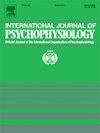Social participation is associated with a habituated blood pressure response to recurrent stress
Abstract
Lower cardiovascular reactivity is a proposed marker of motivational dysregulation and is related to a range of adverse behavioural and health outcomes. Social participation is a form of motivated behaviour and represents the frequency in which an individual engages in social activities. Low social participation has recently been linked to lower cardiovascular responses to acute psychological stress. With recent work emphasizing the importance of assessing adaptation of the cardiovascular response to recurrent stress, the aim of the current study is to build on previous work by examining the relationship between social participation and cardiovascular stress response adaptation. This study utilised data from the Pittsburgh Cold Study 3 (PCS 3). Two hundred and thirteen participants (M = 30.13; SD = 10.85) completed a social participation measure and had their systolic blood pressure (SBP), diastolic blood pressure (DBP) and heart rate (HR) monitored across two separate standardized stress testing sessions. The testing sessions consisted of a 20-minute baseline and a 15-minute stress task. Results indicated that higher levels of social participation were associated with greater blood pressure habituation to recurrent stress, extending previous work identifying that social participation was associated with higher cardiovascular responses to stress. The present study identifies that those reporting greater levels of social participation may show enhanced stress tolerance when exposed to recurrent stress.

 求助内容:
求助内容: 应助结果提醒方式:
应助结果提醒方式:


